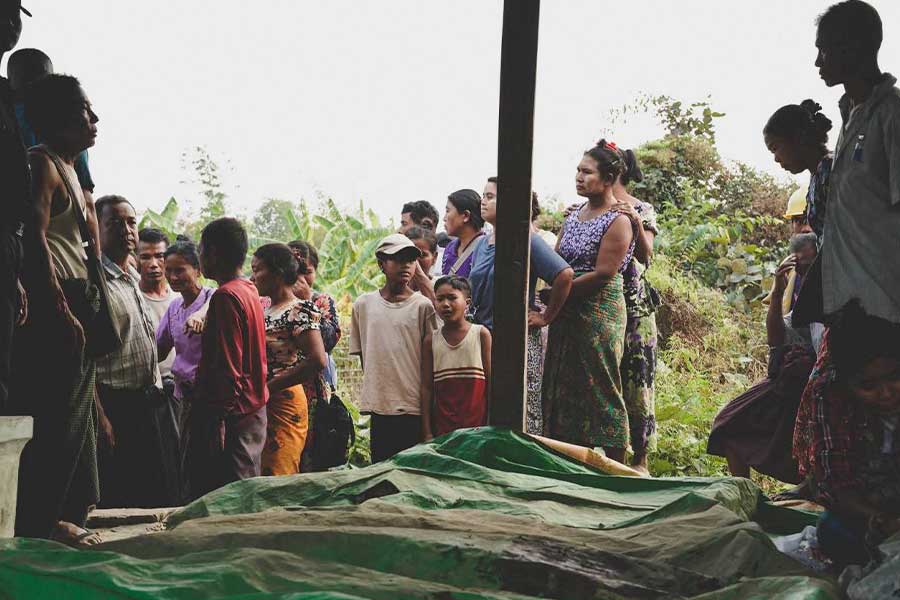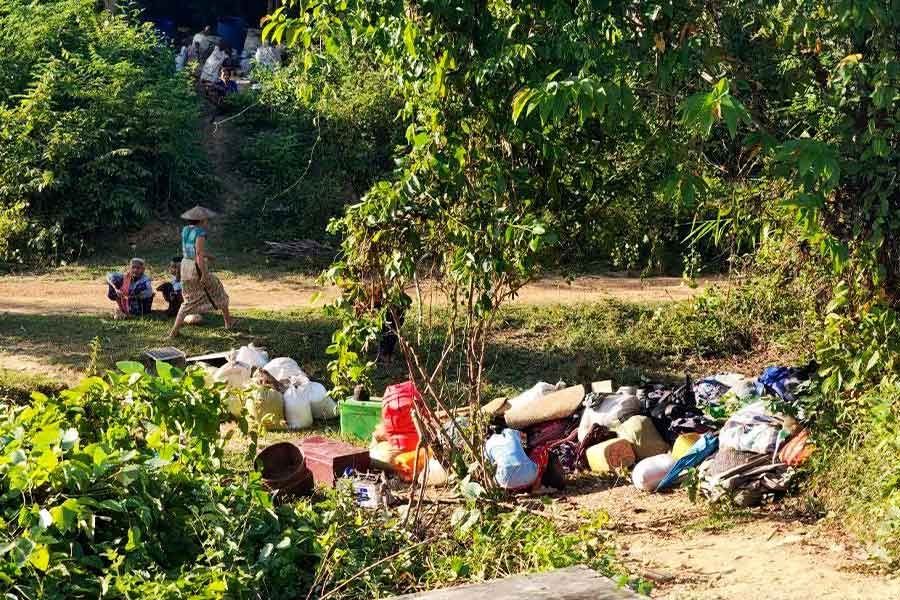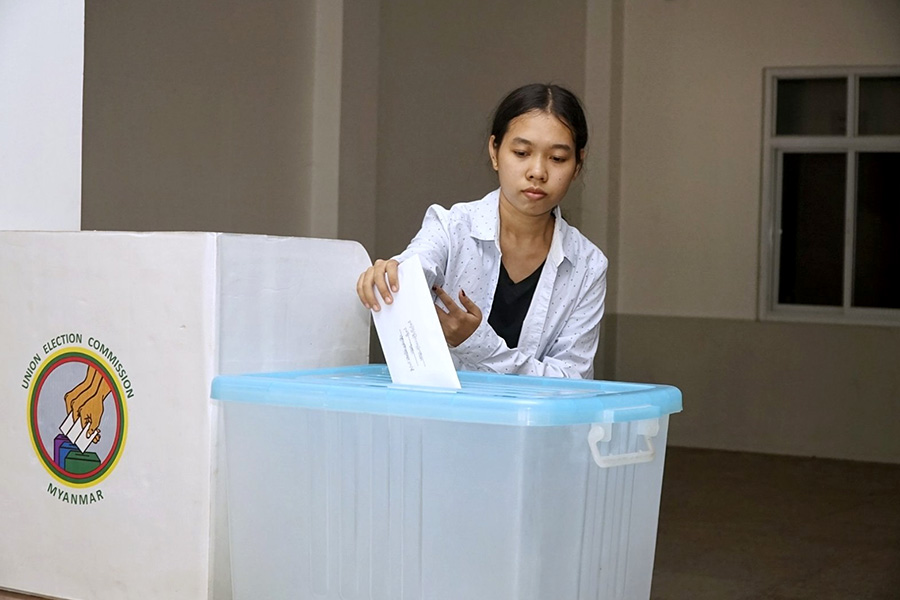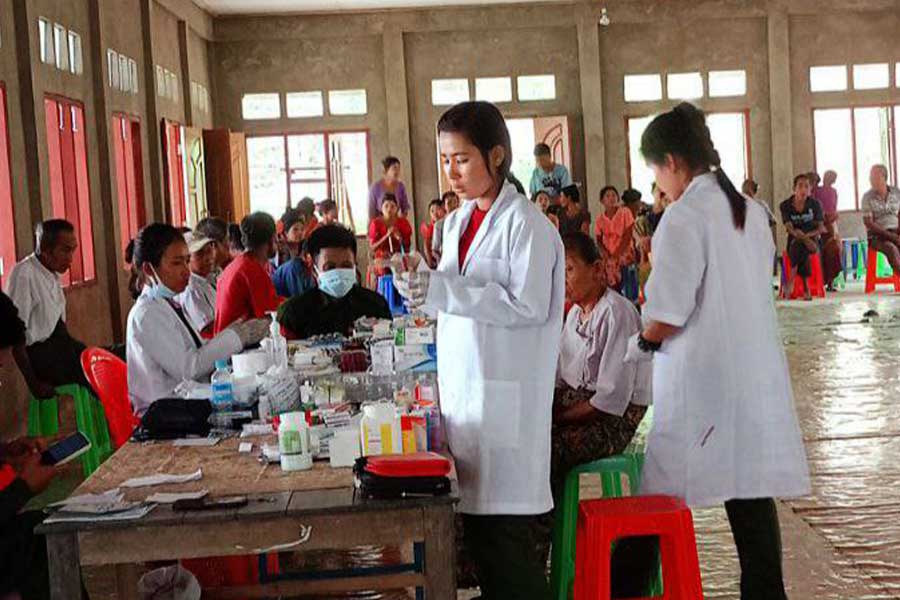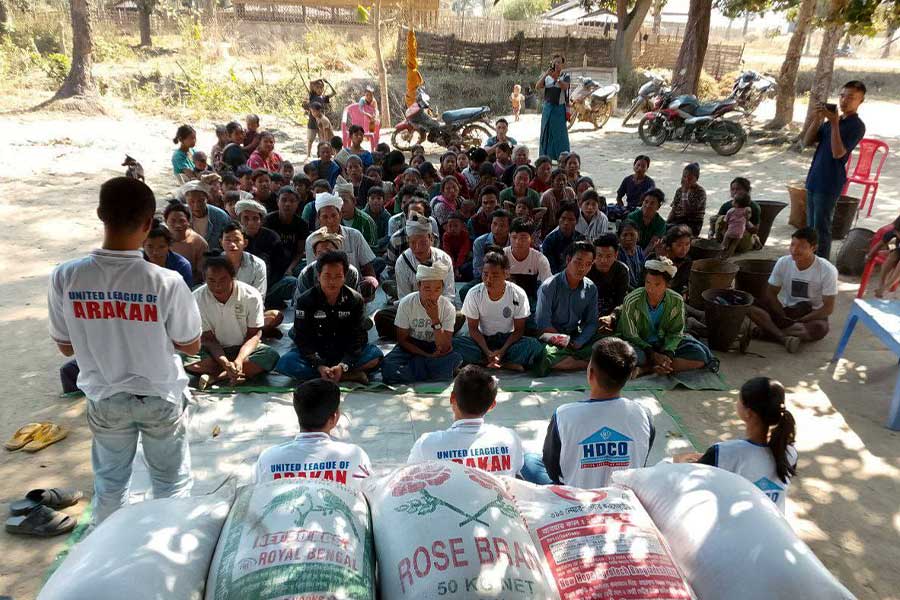- 15 mass casualty incidents from regime airstrikes reported in Arakan State since 2023
- Kyaukphyu IDPs forced to flee again amid junta airstrikes and artillery attacks
- New Diplomatic Movements Between Bangladesh’s New Government and the Arakan Public Administration
- Junta claims over 24 million ballots cast in 2025 poll, cites strong youth turnout
- ULA expands HIV prevention, healthcare services for sex workers in AA-held areas
Arakan State IDPs in need of warm clothes and blankets
Many displaced civilians in Arakan State are living in makeshift tents made of bamboo and tarpaulin sheets, while others are sheltering in pagodas, monasteries and schools.
24 Oct 2024
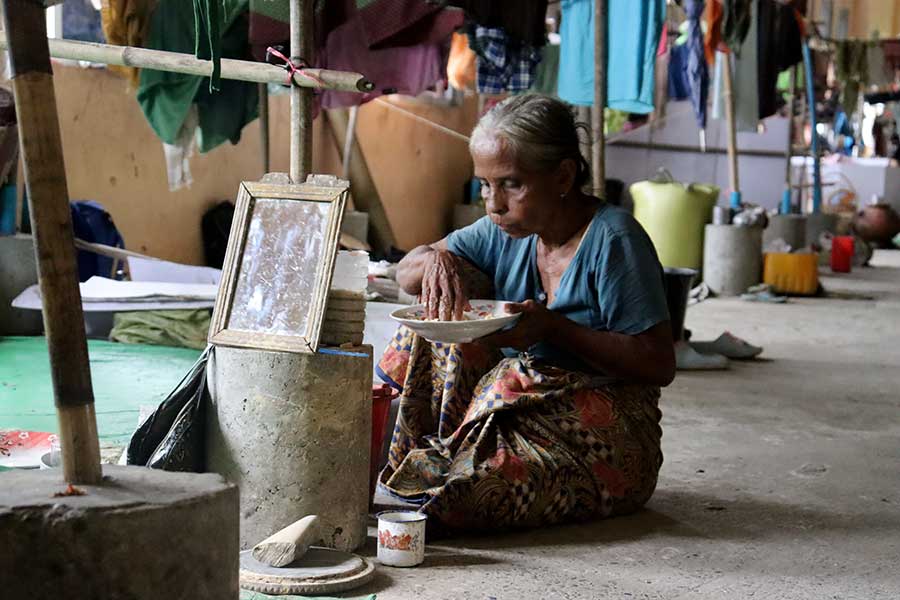
DMG Newsroom
24 October 2024, Ponnagyun
As winter sets in, internally displaced people (IDPs) in Arakan State are in urgent need of warm clothes and blankets to protect them from the cold, IDPs and social activists say.
Many displaced civilians in Arakan State are living in makeshift tents made of bamboo and tarpaulin sheets, while others are sheltering in pagodas, monasteries and schools.
"IDPs sleep on floors in schools and monasteries, so they cannot protect themselves from the cold," said Ma Aye Mya Nandar Mon, Information Officer from the Ponnagyun Youths Association.
Nearly 600,000 people have been displaced by the fighting between Myanmar's military regime and the Arakkha Army (AA) in Arakan State, and the number of IDPs continues to rise due to the ongoing conflict.
As most of the IDPs have been forced to leave their homes, the need for warm clothes and blankets to get through the winter is high.
"We only had paper sheets to use as a bed sheet when we slept. We have children and it is not convenient to live here," said Daw Khin Htay Oo, an IDP woman in Kyauktaw Township.
IDPs in Arakan State also face difficulties receiving humanitarian aid from local and international organisations due to junta blockades.
Pregnant women, children and the elderly in the displacement camps have many challenges to overcome as colder temperatures set in.
"As I get older, I worry about getting sick from the cold," said Daw Khin Soe Phyu, a 70-year-old displaced woman from Sittwe.
Many IDPs in Arakan State are forced to work odd-jobs to make a living due to lack of jobs, rising commodity prices, and lack of humanitarian support.




